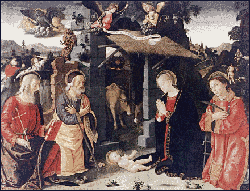Two Men Worth Commending

Praise where praise is due! In recent days, two men, both pastors, have done us a favor by setting a public example of taking a stand in an unpopular arena. The first is Hershael York, pastor of the Buck Run Baptist Church of Frankfort, Kentucky. He was invited to deliver the invocation before the Kentucky legislature on the night in which Governor Steve Beshear would deliver his budget speech. Beshear is lobbying hard for legalizing gambling in the state, largely because Kentucky dollars are going to neighboring states that allow gambling. Beshear is another politician in a long line of pragmatists who think that the end justifies the means. York, in striking contrast, offered this prayer for the legislators:
Help us to admit that we cannot truly love our neighbor as ourselves and then scheme to get his money by enticing him with vain hope. May they not lead this state to share profits from an industry that preys on greed or desperation.
Help us to foster salaries and not slot machines, to build cars and enable jobs—not license casinos and seduce the simple into losing what they have. May their greatest concern not be that we get our share of the family’s losses, but that we foster a sense of hope and justice that creates opportunity and leads to success.
Bully for York for offering a courageous prayer in the face of such pressure. In doing so, he is standing in a long line of preachers and prophets who had the opportunity and courage to cry out against the iniquity of the day. Like Nathan the prophet rebuking King David, or John Knox shaking his finger in the face of the Queen, York besought God publicly for politicians to put righteousness ahead of expediency. Sadly, his prayer fell on the governor’s deaf ears, as the video linked above demonstrates: Beshear followed York’s invocation by continuing to angle for legalized gaming.
 This article is republished from the archives (December, 2008).
This article is republished from the archives (December, 2008).
Discussion